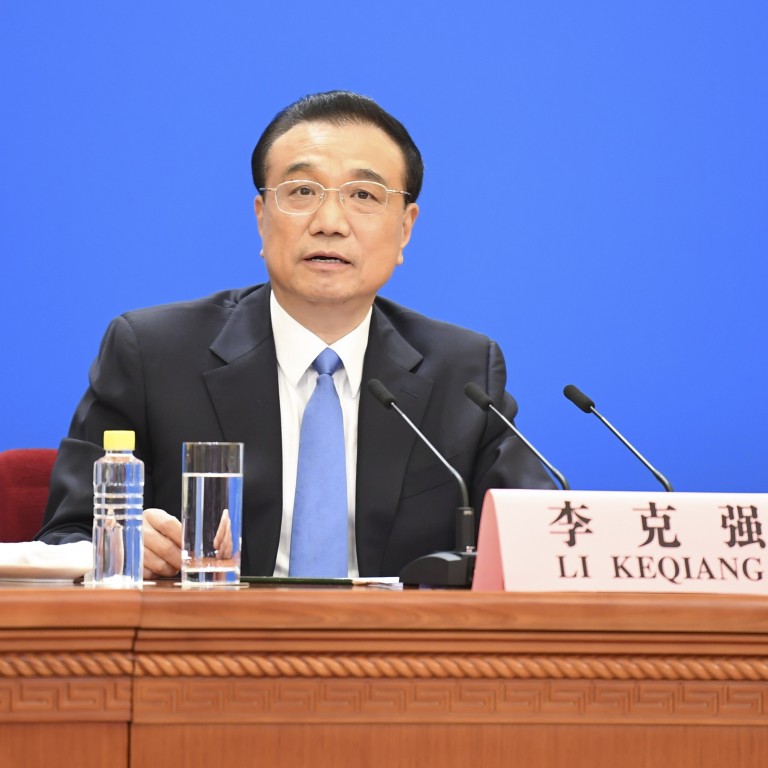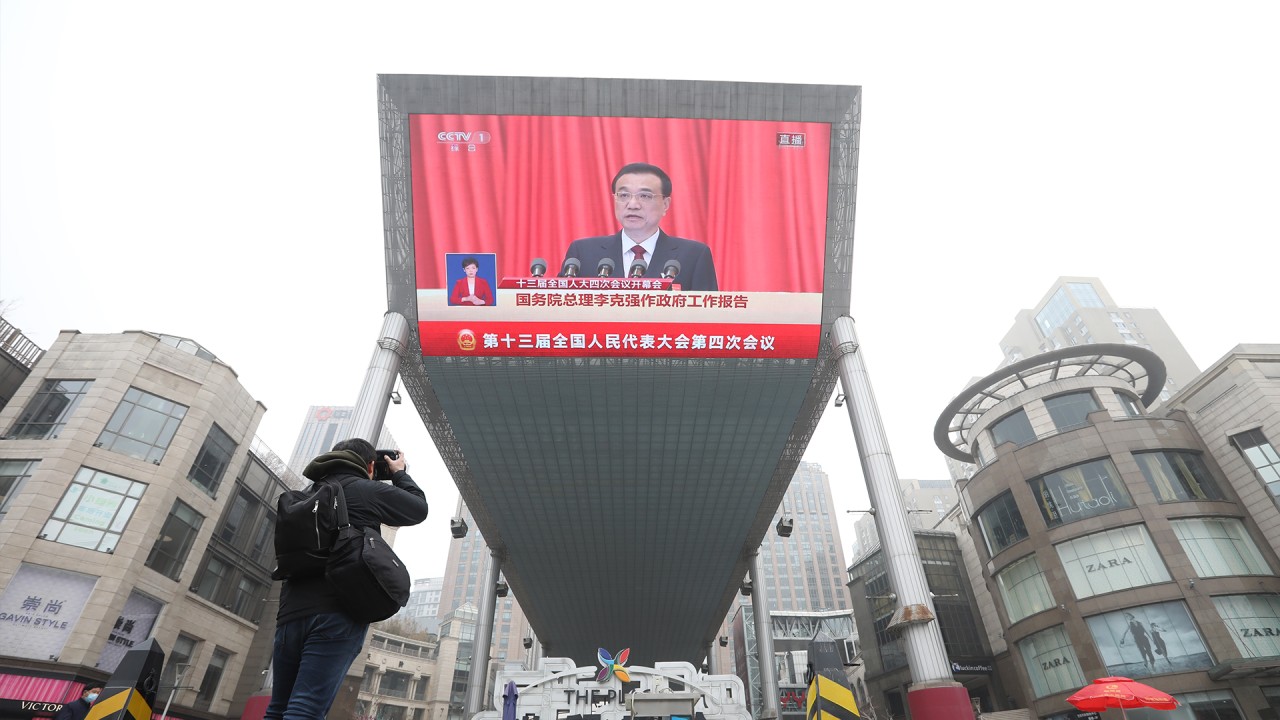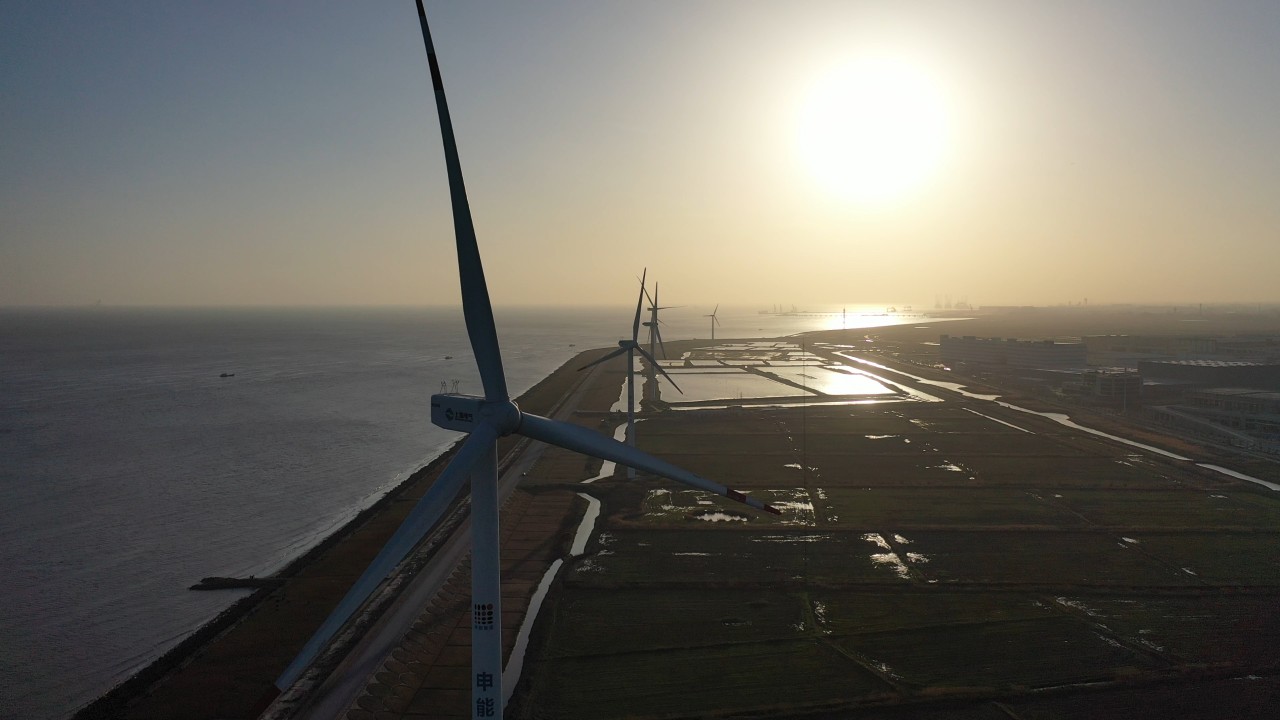
China GDP: Premier Li Keqiang defends modest 2021 economic growth target, says rate could exceed 6 per cent
- Premier Li Keqiang says GDP growth rate of ‘above 6 per cent’ is not low and leaves room for ‘even faster’ economic expansion
- The target gives Beijing leeway to respond to ‘considerable uncertainty’ surrounding economic recovery from the pandemic, Li says
Speaking at a press conference on the last day of the week-long “two sessions” gatherings, Li said the target was not low and the government would be happy to see more robust growth.
“But we are also clearly aware of the considerable uncertainty involving the economic rebound in China, as well as global economic growth and development,” he said.
“The Chinese economy has reached 100 trillion yuan (US$15.3 trillion) in value, and 6 per cent growth means generating an output of 6 trillion yuan.
This target is not set in stone, it’s intended to guide expectations
“That is the same amount that would have been added by a growth rate of almost 8 per cent at the start of the 13th five-year [plan] period” in 2016, he said.
Li said by setting the GDP growth target at above 6 per cent, the government had left the door open for “even faster growth”.
“This target is not set in stone, it’s intended to guide expectations,” he said, adding the country still needed to consolidate the economic recovery.
China’s economy grew by 2.3 per cent in 2020, a dramatic turnaround after the coronavirus pandemic ravaged the country in the early part of the year.
We must avert wild swings in economic performance that would de-anchor market expectations
But the rebound has been uneven, led by state investment and surging export orders thanks to strong demand in Western countries. Many small businesses, which account for the bulk of employment in China, are still struggling to get back on their feet.
Li said the GDP target needed to be aligned with the “possibilities and conditions” for what could be accomplished next year and the year after that.
“We must avert wild swings in economic performance that would de-anchor market expectations,” he said.
“Growth that is too fast would not be steady. You need a steady pace to sustain China’s development for the long run.”
Most analysts expect China’s economy to grow by more than 8 per cent this year, easily surpassing the government’s target.
In addition, given year-on-year growth figures in 2021 will be skewed upwards in comparison with the weak growth rates of last year, the government wanted to emphasise the sustainable level of growth on a quarterly basis over the course of this year.
Li played down the prospect of a significant tapering of fiscal and monetary stimulus this year, while repeating the government would take steps to reduce financial risks.

03:56
China’s 2021 National People’s Congress opens with Hong Kong’s electoral system on the agenda
“We didn’t use quantitative easing last year, so this year there’s no need for any sudden shifts in our policy,” said Li, referring to a monetary policy that adds liquidity to financial markets by buying up securities and is being used by other major central banks.
“Just as we must ensure the fertiliser goes to the very root of a plant, we need to continue to support market entities, especially those smaller firms who are just recovering from the Covid-19-induced shock.”
As China’s economic rebound firms, authorities will begin adjusting policies that were introduced at the height of the pandemic last year, said Li, adding any drawdown will be offset by new cuts to taxes and fees.
The premier also repeated that government at all levels in China would have to reduce spending and “live on a tight budget”.
This year we still face mounting pressure to generate jobs
Li said creating employment opportunities would continue to be a “top priority” in formulating macroeconomic policies.
“This year we still face mounting pressure to generate jobs,” Li said.
Policies to boost jobs that were introduced last year will be kept in place and strengthened in some respects.
“We believe that as the economy continues to rebound, it will boost employment,” he said. “When there is an expansion employment, it will also, in turn, promote steady growth of China’s economy.”

03:26
Two sessions: How China's environmental policies are giving a boost to green industries
As part of its recovery, the government would continue to open up the domestic market to foreign firms, Li said.
“The Chinese economy has become deeply integrated into the global economy, so shutting its door to the world will lead nowhere,” he said, adding rising domestic demand would be a great opportunity for foreign businesses.
In May last year, President Xi Jinping introduced a new “dual circulation” economic strategy that relies more on domestic demand to power growth, although it does not abandon foreign trade.
Foreign trade and the domestic economy would “reinforce each other”, Li said.


